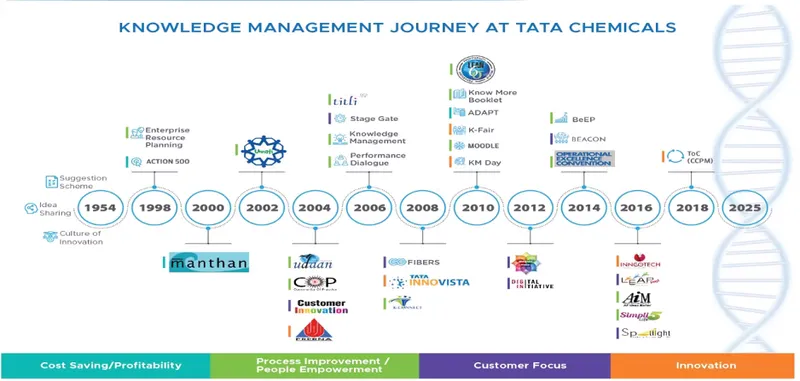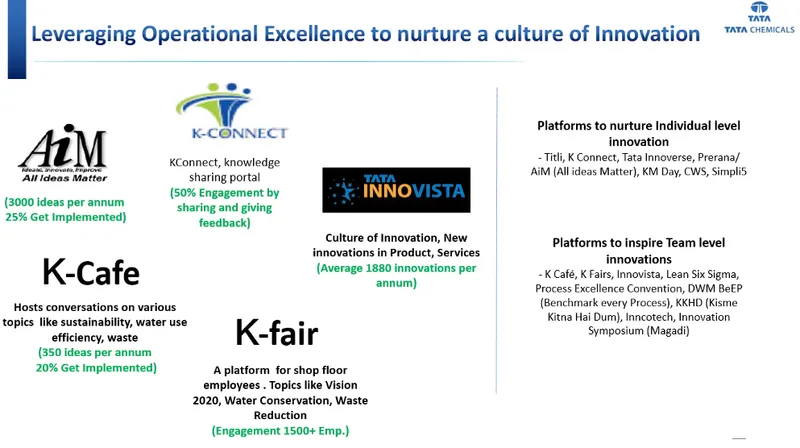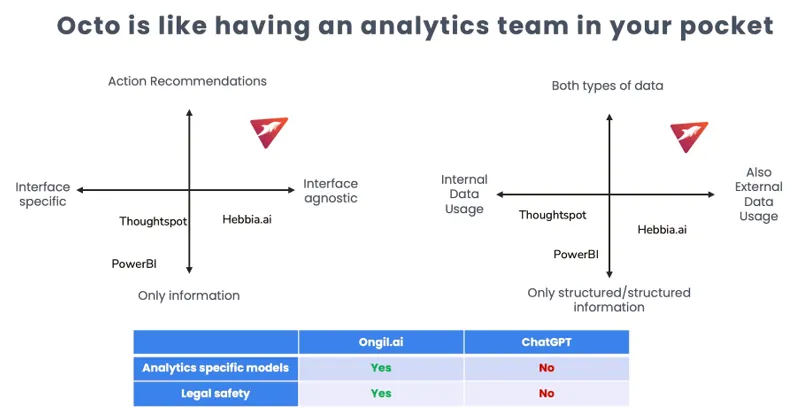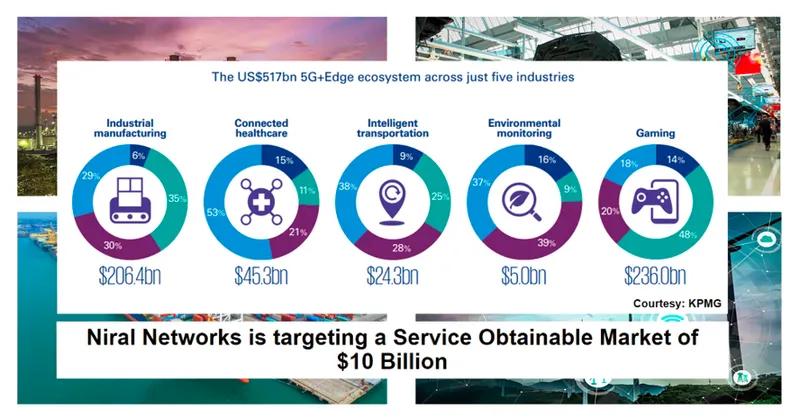Knowledge management: how digital transformation unlocks enterprise value and startup opportunities
Speakers at the Bangalore K-Community meetup share a range of insights and examples of digital impact on corporate excellence. Here are some takeaways!
The Bangalore K-Community, a forum of professionals in knowledge management (KM) and organisational learning, recently held its online meetup on the theme of Enterprise Knowledge Management and Digital Transformation.
Hosted by Dr Molly Chaudhuri, Director at Manel Srinivas Nayak Institute of Management, it featured a keynote session followed by four startup pitches. As moderator, here are my clusters of takeaways from this wide-ranging and informative discussion.
As media partner for the annual CII Global Knowledge Summit, see YourStory’s coverage of the editions from 2022, 2021, 2020 and 2019. Check out our session takeaways from the earlier Bangalore K-Community meetups on Resilience, Career Prospects, The Digital Edge, Internal Branding, Metrics, Case Studies (HGS, Unisys) and Work From Home.
See also our profiles of the Most Innovative Knowledge Enterprise (MIKE) award winners: Dubai Municipality, EY, Tata Steel, Cognizant Technology Solutions, Afcons Infrastructure, Petroleum Development Oman, BINUS University (Indonesia), and Mobarakeh Steel Company (Iran).

Source: Tata Chemicals
TechSparks 2022 recap – 80 quotes from India’s premier tech innovation summit
Keynote: Tata Chemicals
A keynote on Enterprise Knowledge Management and Innovation was delivered by Dr Richard Lobo, who heads Tata Chemicals’ strategy, business excellence, and continuous improvement for India, the US, UK, and Kenya.
The company’s innovation and knowledge journey has included platforms and events such as a Knowledge Fair, KM Day, Innovista awards, K-Café, learning Moodle, AIM platform (‘All Ideas Matter’), and publications like a ‘Know More’ booklet.
Tata Chemicals is the world’s third largest producer of soda ash, and sixth largest producer of sodium bicarbonate. Its agricultural products reach 80% of India’s districts. Scientists from its Pune and Bengaluru R&D centres have filed over 124 patents, and there is a strong focus on sustainability science.
Its operational excellence tools include communities of practice for cross-border sharing of knowledge. This is in the areas of safety, business excellence, and engineering.
“Our INNCOTECH annual event promotes innovation and collaboration using technology,” Richard explained.
“We also create magical moments as part of our ethos of giving back,” he added, citing the Okhai women artisans initiative as an example. Tata Chemicals has also set up the subsidiary Ncourage Social Enterprise Foundation in Maharashtra.
The company was ranked No.1 in India’s top companies for CSR, Sustainability, and Responsible Business Rankings 2019, and in the Top 10 Safe Workplaces for Women in India (by Rainmaker).

Source: Tata Chemicals
The company leverages digital initiatives for customer engagement and innovation. “LEAP – Lead, Engage, Aspire, Perform–is our platform to deliver on strategic imperatives,” Richard said. Competitive intelligence is tracked via the Spotlight platform.
The K-Connect platform connects employees to international business best practices. “Its new avatar enables responsive design for multi-device access, and even a privilege points feature which can be redeemed across a range of products,” Richard showed.
Other methods for reward and recognition include WordSmith (50 points for each content piece generated), Influencer (10 points for reviews), Content Ruler (more points for highly-rated content by prolific writers), and even ShareKhaan (rewards for sharing content across SBUs).
Tata Chemicals has won the MIKE (Most Innovative Knowledge Enterprise) award at the global and India levels, as well as Asia’s Most Trusted Companies Award. It has ranked amongst the Top 25 Innovative Companies in India.
Three R&D centres in India drive innovation in new products such as water purifiers and aeroponics. More recent initiatives address the circular economy, storage for electric vehicles, and battery recycling.
“We codify learning from our innovations–including failure,” Richard affirmed. This includes the ‘Dare to Try’ award for brave efforts that did not work out but yielded useful learnings. AI tools are used to sift through successful and rejected ideas.

Octo, by Ongil.ai
What’s on your screen? Here are the apps we loved in 2022
Startup opportunities in the digital enterprise
Four startup founders presented a range of trends in enterprise digital transformation, AI, content management, and internal crowdsourcing. They covered issues around emerging technologies (including ChatGPT), product assessment, business impacts, and implementation roadmaps.
Dr Ajith S, CEO, Ongil.ai, presented the company’s AI offerings, which he described as ‘ChatGPT for enterprise content'. In many enterprises, hardly 10% of data sources are utilised, he observed; most legacy tools work on information and do not provide actionable insights. The startup’s ‘AI-powered operating system for business decisions’ has helped companies like 3M, Unilever, Universal Music Group, and ABinBev.
Dr Siddharth Kumar, CEO, Wellbe, addressed the growing market in India for tech-driven corporate wellness solutions, which currently covers only 15% of the country’s workforce. The startup’s corporate dashboard tracks employee participation in healthcare programmes, and provides a ‘wellness buddy’ helpline. This applies to physical health and emotional intelligence. Wellbe works with hospitals and insurance firms as partners.
Abhijit Chaudhary, CEO, Niral Networks, shared his startup’s offerings for 5G industrial connectivity via private core and edge networks. This accelerates operational effectiveness via drone-based tracking, robotic automation, and predictive maintenance. Augmented reality and remote expertise can reduce unplanned downtime. Use cases lie in connected healthcare and environmental monitoring as well.
Vinay Dora, CEO, CrowdProduct, shared a range of his startup’s solutions for corporate engagement and internal crowdsourcing. The workflow platform can be used for virtual and hybrid events for conducting polls, clustering audience questions, ranking pitches, conducting market research, and matchmaking based on participant needs. This improves audience engagement at corporate events and lead generation at public events. Clients include NASSCOM, HeadStart, TiE Bangalore, and KDEM.

Source: Niral Networks
‘Data is at the heart of all decision making’ – Top 50 quotes of 2022 on digital transformation
The road ahead
The speakers acknowledged that while digital transformation will continue to be a major driver for enterprise value, much of its success will depend on leadership support, a creative workforce, and effective corporate-startup engagement.
The rise of impactful digital tools like generative AI, enterprise content management, and virtual collaboration platforms will transform enterprise knowledge work, while also opening up new opportunities for startups. Cross-cutting industry forums will be key in promoting conversation and collaboration in this regard.
Future sessions of the Bangalore K-Community will feature more case studies of KM and emerging technologies, and co-creation of value between corporates and startups.
Edited by Megha Reddy






